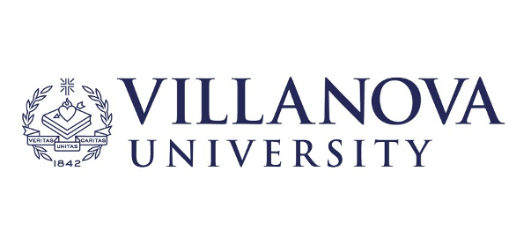Careers in accounting are popular among business school graduates due to the strong salaries, career progression, and breadth of opportunities available in the accounting sector and beyond—whether you see yourself working for a Big Four or prefer a specialist role in a boutique firm.
In fact, Gen Z are increasingly interested in careers in accounting, according to the Graduate Management Admission Council (GMAC) Prospective Students Survey 2023.
We spoke to two Master in Accounting grads who are working in different roles to ask: Is accounting a good career path?
Benefits and challenges of accounting careers in audit
Traditionally, many accountants start their career journey in professional services companies. This is because these companies, such as KPMG, PwC, EY, and Deloitte, provide great training opportunities and career support that wouldn’t be as easy to find in a smaller company.
Margaret Mary Rilling is a graduate from the Master of Accounting with Data Analytics (MAC) at Villanova School of Business (VSB).
She works as a senior audit associate at KPMG’s Center for Audit Solutions as part of a rotation scheme. She mainly works on strategy and design for the future state of accounting, identifying how to centralize, standardize, and automate processes.
“Having a data analysis background has been really helpful in using the tools that already exist and then also assessing potential future state tools,” she says, adding that the MAC program’s focus on data analysis was one of the main reasons she was attracted to the program.
In terms of the benefits of her accounting career, Margaret Mary loves the challenge of working with a variety of clients from large companies to small private businesses.
“Every day is different,” she says, “auditing is a great field if you think of the first few years of your career as a continuing education.”
Yet, Margaret Mary warns of the need to keep up-to-date with data analysis as dealing with complex data sets is a central part of a career in accounting, which is where her MAC degree has helped hermost.
How to build a promising accounting career in audit
As an entry-level audit professional, Margaret Mary explains that some of the key benefits she has gained from the MAC program are an improved ability to handle technical conversations with clients and gaining a deeper knowledge of the accounting sphere.
“The MAC program is very project-based, mirroring the challenges in accounting. Every class has large group projects,” she says.
Noting some of her favorite courses, she found her courses on data analysis, such as Data Models, Analysis, and Visualization, most useful to her career.
“The combination of an accounting and auditing background and an understanding of new technology is key,” she says.
Another way that the MAC program has helped her progress in her role is being able to apply the same logic from her accounting studies when dealing with clients.
“I feel more prepared to answer tough questions as the master’s helped provide a framework to analyze complex data-based problems,” she says.
She offers some wise words of advice for those thinking about their next career steps.
“Don’t discount accounting if you’re not familiar with it, you might really like it—it’s challenging and exciting, just be ready to learn and pay attention in your core [accounting master’s] courses so you have a solid framework to lean back on.”
Benefits and challenges of accounting management
Careers in accounting are as varied as the work itself. Kate Reasons, a graduate from the Villanova MAC program, is testament to this.
Kate first heard about the master’s degree in accounting when completing a summer internship with KPMG. At the time, the company was partnering with VSB on a tailored MAC program.
“When I saw the real-world applications of the program, such as business analytics, SQL, Alteryx, Power Bi, I knew it was different from traditional accounting master’s programs,” she says.
If you’re looking to qualify as a Certified Public Accountant (CPA), joining a Master in Accounting program can contribute toward the total credits needed for the qualification.
This was also one of the reasons why Kate—now a qualified CPA—joined the MAC program.
After her experience working full-time for KMPG, Kate later transitioned to a role in industry where she is an accounting manager at financial services firm, Ampla.
“This is always a route I recommend people to take—the experience you get in a Big Four accounting firm is something you can’t replace.”
Despite her success in KPMG, Kate wanted a new challenge.
“After spending my career reviewing others’ work, I decided to look at other markets.”
She was drawn to the innovative fintech industry in New York, which suited her creative personality and desire for unique projects.
“I have a lot of room for growth and autonomy—I’m trusted to get the work done,” she says.
In terms of her day-to-day role, Kate took Ampla through its first year of audit, which involved analyzing financial statements, overhauling business processes, and maximizing efficiency.
“If you solidify your position to an organization where they rely on you, your role becomes so necessary to the organization,” she says.
Despite the allure of the role, it can come with its challenges. Working at a startup requires you to be agile and innovative, ready to solve problems at a moment’s notice with a smaller team to fall back on.
“The challenges are exactly what I like about the role: You have to be creative and analyze your resources—you need to give so much more than a straight answer.”
How to build a successful career as an accounting manager
The accounting knowledge that Kate gained in the Villanova MAC program has played a crucial role in her accelerated career path from public accounting to accounting management at a startup.
Since the program has an emphasis on data skills, with topics on areas such as the Digital Accounting Experience, this has helped her communicate with data engineers.
“Being able to speak both the engineering and accounting language is critical,” she says.
She adds that her classes in Financial Accounting and Tax and Business Strategy have also helped her understand how to make smart financial decisions.
“The MAC program helped me to have this cross-functional stream of learning both the data and financial side of accounting, which has been important to growing my career in the field,” she concludes.
Student Reviews
Villanova School of Business








